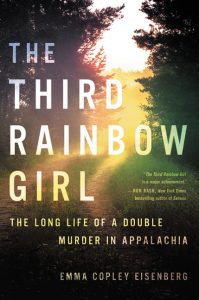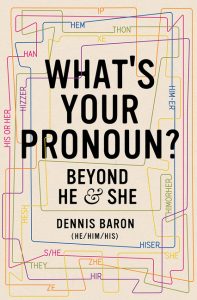
Isabel Allende’s A Long Petal of the Sea, Jeanine Cummins’ American Dirt, and Emma Copley Eisenberg’s The Third Rainbow Girl all feature among the Best Reviewed Books of the Week.
1. A Long Petal of the Sea by Isabel Allende
6 Rave • 6 Positive • 2 Mixed
“[Allende] has deftly woven fact and fiction, history and memory, to create one of the most richly imagined portrayals of the Spanish Civil War to date, and one of the strongest and most affecting works in her long career … The notions of love and belonging are satisfyingly complex in the novel, where intimate connections are challenged as countries tumble toward fratricidal conflict and upheaval … [Allende] shows a deft hand and tremendous poise here, creating a story that feels true as well as consequential … as in much of Allende’s fiction, there is the sense that every human life is an odyssey, and that how and where we connect creates the fabric of our existence: the source of our humanity. If what happens to us—the axis of our fate—is nearly always beyond our control, stubbornly unchangeable, we can still choose what we cleave to and fight for, refusing to be vanquished. This is true belonging, and how we build a world.”
–Paula McLain (The New York Times Book Review)
Listen to an interview with Isabel Allende here
2. American Dirt by Jeanine Cummins
12 Rave • 2 Positive • 4 Mixed • 4 Pan
“… a literary novel, to be sure, with nuanced character development and arresting language; yet, its narrative hurtles forward with the intensity of a suspense tale … American Dirt‘s most profound achievement, though, is something I never could’ve been told about nor anticipated. Of all the ‘What if?’ novels I’ve read in recent years—many of them dystopian—American Dirt is the novel that, for me, nails what it’s like to live in this age of anxiety, where it feels like anything can happen, at any moment … Cummins’ novel brings to life the ordeal of individual migrants, who risk everything to try to cross into the U.S. But, in its largest ambitions, the novel also captures what it’s like to have the familiar order of things fall away and the rapidity with which we humans, for better or worse, acclimatize ourselves to the abnormal. Propulsive and affecting, American Dirt compels readers to recognize that we’re all but a step or two away from ‘join[ing] the procession.'”
–Maureen Corrigan (NPR)
3. Follow Me to Ground by Sue Rainsford
6 Rave • 5 Positive • 1 Mixed
“This seethingly assured Irish debut infuses magic realism with critical and feminist theory, but the generous dose of horror movie imagery brings a left-field project firmly into the literary mainstream. Like all the best horror, it’s an impressive balancing act between judicious withholding and unnerving reveals: you don’t want to go into it knowing too much … Perhaps the book Follow Me to Ground is most kin to is Han Kang’s The Vegetarian, another tale of transformation that is fascinated both by female flesh and by what it might mean to escape it … Follow Me to Ground is odd and muscular enough to resist easy interpretation. It can be read on many levels—as a fable about female yearning, or about containment and contagion; as an investigation into toxic relationships or a puzzle over the borders between human and non-human—but it is always singularly and entirely itself.”
–Justine Jordan (The Guardian)
4. The Wife and the Widow by Christian White
6 Rave • 2 Positive
“It’s often hard to write about the machinations of a really good crime novel without giving too much away, and this is indeed the case with The Wife and the Widow. It’s one of those books that you recommend to people with the instruction, read it—and then we can talk. What can be said is that White employs a highly original narrative structure … [White] also writes like a dream … one of the most original crime novels of the year and White is clearly a rising international star of the now very vibrant Australian crime fiction scene. Prepare to be dazzled.”
–Susan Turnbull (The Sydney Morning Herald)
5. Small Days and Nights by Tishani Doshi
2 Rave • 7 Positive
“Small Days and Nights starts off with a simple premise that becomes a shattering study of disaffection and belonging … a concise novel of staggering depth … there is incredible physical and emotional violence. In its vivid setting, the novel is not exactly a paean to modern India so much as a piercing Munchian howl of grief … Each page of this novel bears testament to [Doshi’s] skills as inequality, secrecy and unhappiness harden into menace. Through a cycle of visits, returns and memories, [Grace] must weather huge unease and bruising conflicts. Eventually, she finds strength and acceptance in this disturbing, deep and utterly extraordinary novel.”
–Bidisha (The Guardian)
*

1. The Third Rainbow Girl: The Long Life of a Double Murder in Appalachia by Emma Copley Eisenberg
5 Rave • 1 Positive
“… an evocative and elegantly paced examination of the murders that takes a prism-like view of the crime … [Eisenberg’s] unraveling of the brutal double murder is as skilled as her exploration of Pocahontas County, where the men, as much as the women, appear trapped in their predestined societal roles, and where toxic masculinity gnaws at the men, rudderless and lost, who drink to fill the idle hours. But she also digs deeper, beyond the old clichés of insular, backward mountain folk, to find a thriving transgender community and an independent, open-minded streak among the county’s inhabitants … not just a masterly examination of a brutal unsolved crime, which leads us through many surprising twists and turns and a final revelation about who the real killer might be. It’s also an unflinching interrogation of what it means to be female in a society marred by misogyny, where women hitchhiking alone are harshly judged, even blamed for their own murders.”
–Melissa Del Bosque (The New York Times Book Review)
2. American Queenmaker: How Missy Meloney Brought Women Into Politics by Julie Des Jardins
2 Rave • 4 Positive • 1 Mixed
“Julie Des Jardins brings impressive research skills in her biography of Missy Meloney, the most important feminist nobody has heard of … this one small sickly woman packs more into her life than any ordinary human being. Reading this biography is like reading the lives of several people. Des Jardins rightly stresses Meloney’s role as facilitator and cheerleader, showing how important this kind of support can be for scientists, writers, and politicians. Meloney’s life serves as a kind of blueprint for how women can help each other … Des Jardins’ writing inspires all of us in the way Missy clearly inspired others. It’s an incredible feat for a biography to serve its subject so well.”
–Marissa Moss (New York Journal of Books)
3. Fight of the Century: Writers Reflect on 100 Years of Landmark ACLU Cases, Ed. by Michael Chabon and Ayelet Waldman
3 Rave • 2 Positive
“.. includes an engaging and informative foreword by David Cole … Cole offers a good summary of the impressive array of momentous victories the ACLU has achieved, as discussed in these pages … Readers will find it refreshing to read a collection of essays about court decisions written mostly by novelists. Far be it for me to complain about the way lawyers write, but it is certainly welcome to consider the impact and relevancy of important judicial decisions outside the strict boundaries of legal and constitutional interpretation and instead through the lens of lived experiences, full of struggle, emotion, fear, resilience, hope, and triumph … giv[es] some of the most important court decisions of the last 100 years a human dimension and added relevance and urgency. The writers achieve this by illuminating the personal stories behind the legal decisions and by connecting their own lives to the legal issues at stake.”
–Stephen Rohde (The Los Angeles Review of Books)
4. Slaying Goliath: The Passionate Resistance to Privatization and the Fight to Save America’s Public Schools by Diane Ravitch
2 Rave • 2 Positive • 2 Mixed
“…it’s like nothing I’ve ever read. This is a history torn from the front page … where the book is truly unique is in its celebration of the education activist community … Ms. Ravitch’s book is not just about the Goliath of the disruptors. It’s a celebration of everyday Davids who stand up to the hulking beast and armed with only their slingshots of facts have continually beaned him between the eyes.”
–Steven Singer (The Pittsburgh Post-Gazette)

5. What’s Your Pronoun?: Beyond He and She by Dennis Baron
1 Rave • 4 Positive
“After this slightly forced attempt at with-itness, What’s Your Pronoun? settles down into a scrupulous and absorbing survey. Its great virtue is to show that these issues are nothing new … Baron’s book layers on rather too many examples of historical usage, including a 60-page ‘chronology of gender-neutral and nonbinary pronouns’ at the end. This scholarly assiduousness, though, also makes him the ideal pilot through these contentious political-linguistic waters. If you want to know why more people are asking ‘what’s your pronoun?’ then you (singular or plural) should read this book.”
–Joe Moran (The New York Times Book Review)

